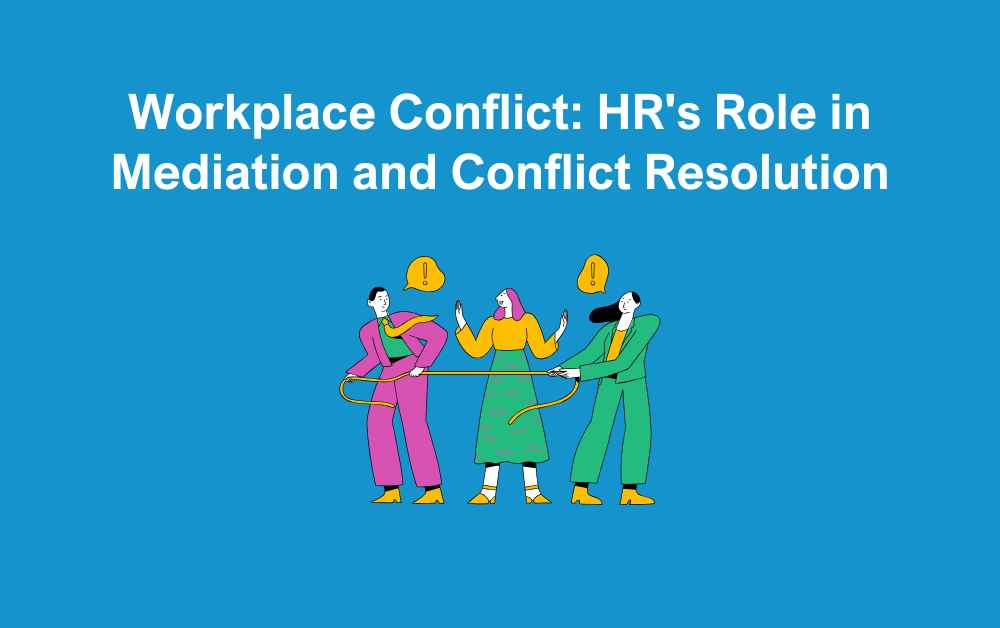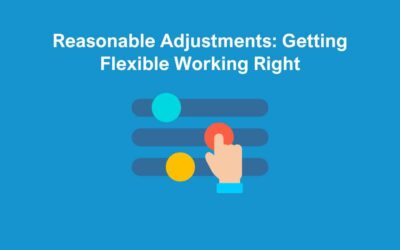Workplace conflict is an inevitable part of any organisation. Whether it stems from personality clashes, miscommunication, or differences in work styles, conflict can disrupt team dynamics, lower morale, and even impact productivity.
Since the pandemic, many businesses have implemented mandates to return to the office, leading to a rise in workplace grievances. Employees and employers alike are navigating new expectations, hybrid working challenges, and shifting workplace dynamics, all of which have contributed to increased tensions. As a result, it is essential for employers to take proactive steps to manage and resolve disputes before they escalate.
The Rise in Workplace Grievances
We are finding that workplace conflict is on the rise. With increased workplace pressures, remote working challenges, and changing employee expectations, disputes are becoming more frequent and, in some cases, more severe. If left unchecked, these conflicts can lead to higher staff turnover, reduced employee engagement, and even legal issues.
For employers, addressing workplace conflict should be a priority. Failure to do so can result in toxic work environments, decreased productivity, and reputational damage. Recognising the signs of conflict early and implementing conflict resolution strategies can help maintain a positive and healthy workplace.
The Role of HR in Workplace Conflict Resolution
HR plays a crucial role in managing workplace conflict by providing mediation and conflict resolution services. An effective HR department can help prevent disputes from escalating and offer structured approaches to finding a resolution.
1. Early Intervention
HR professionals are trained to identify potential conflicts before they become significant problems. Through open communication and regular check-ins, HR can address minor concerns and misunderstandings before they spiral into full-blown disputes.
2. Mediation Services
Mediation is one of the most effective ways to resolve workplace disputes. HR can act as a neutral third party, facilitating conversations between employees to find a mutually acceptable resolution. Mediation helps employees feel heard, reduces hostility, and fosters a culture of respect and collaboration.
3. Implementing Clear Policies
Clear workplace policies on conflict resolution, grievance procedures, and workplace behaviour can help prevent workplace conflict. HR ensures that employees are aware of these policies and know the correct procedures to follow when a conflict arises.
4. Providing Training and Development
One of the best ways to minimise misunderstandings is by providing training on communication, emotional intelligence, and conflict resolution. HR can organise workshops to help employees and managers develop skills that allow them to navigate disagreements effectively.
5. Creating a Culture of Open Communication
Encouraging a culture where employees feel comfortable discussing concerns can prevent conflicts from escalating. HR can implement feedback mechanisms, such as anonymous surveys or regular one-to-one meetings, to understand employee concerns and address them proactively.
Why Employers Must Take Workplace Conflict Seriously
Workplace conflict, if ignored, can result in negative consequences for both employees and the organisation. Employees who feel unsupported in workplace disputes are more likely to disengage, take sick leave, or even leave the company. Furthermore, unresolved conflict can lead to costly legal disputes that could damage an employer’s reputation.
By investing in conflict resolution strategies and HR-led mediation, businesses can create a more harmonious workplace, improve employee retention, and enhance overall productivity. Conflict should not be seen as a problem to avoid but rather as an opportunity to strengthen workplace relationships and improve team collaboration.
Examples of Workplace Conflict and How The HR Booth Can Help
1. Personality Clashes and Team Disputes
A common cause of workplace conflict is personality differences, which can lead to tensions and disruptions in team dynamics. For example, a team may struggle with an employee who prefers independent work, while others rely on collaboration. Without proper intervention, this misalignment can lead to resentment and reduced teamwork.
How The HR Booth Can Help:
- Facilitate mediation sessions to encourage open discussions and understanding between employees.
- Provide team-building workshops to improve collaboration and strengthen relationships.
- Implement personality assessments to help employees understand different working styles.
2. Remote and Hybrid Working Conflicts
The shift to hybrid working has created new challenges, such as miscommunication, lack of visibility, and workplace conflict over workloads or flexibility. Employees who feel they are being treated unfairly compared to in-office colleagues may become disengaged or resentful.
How The HR Booth Can Help:
- Develop clear hybrid working policies to set expectations for all employees.
- Mediate disputes regarding flexible working arrangements to ensure fairness.
- Provide training on remote communication to help teams collaborate effectively.
3. Harassment or Bullying Allegations
A workplace conflict can escalate and an employee may report feeling harassed by a colleague. If their manager does not take appropriate action, this could progress further into a formal grievance or even legal action, impacting the organisation’s reputation and employee wellbeing.
How The HR Booth Can Help:
- Conduct thorough investigations in line with company policies and legal requirements.
- Offer training to managers on how to identify and handle harassment cases.
- Provide confidential support to affected employees and ensure a safe workplace culture.
4. Unfair Treatment or Favouritism
Employees may feel that promotions, pay rises, or workload distribution are not handled fairly, leading to dissatisfaction and disengagement. When employees perceive bias in decision-making, it can damage trust and morale.
How The HR Booth Can Help:
- Review company policies to ensure fair and transparent decision-making.
- Conduct employee engagement surveys to identify concerns early.
- Train managers on unconscious bias and fair leadership practices.
5. Grievances and Disciplinary Issues
A workplace conflict escalates when an employee submits a formal grievance against a colleague or manager. If not handled correctly, this could result in a toxic work environment or legal complications.
How The HR Booth Can Help:
- Guide employers through grievance and disciplinary procedures in compliance with UK employment law.
- Act as a neutral party in hearings or mediation sessions.
- Provide ongoing HR support to prevent future conflicts.
Final Thoughts
Workplace conflict is an unavoidable part of professional life, but how it is managed makes all the difference. With the rise in workplace grievances, employers must take proactive steps to address disputes before they escalate. HR plays a critical role in providing mediation, enforcing workplace policies, and fostering a culture of communication and respect.
By prioritising conflict resolution and providing the necessary support, businesses can create a positive and productive work environment where employees feel valued and heard. Investing in HR-led conflict resolution is not just a smart business move; it’s essential for long-term success.
Need Help Resolving Workplace Conflict?
If your organisation is struggling with workplace conflict, our expert HR team can provide professional mediation and conflict resolution services. Contact us today to learn how we can help create a healthier, more productive workplace.







